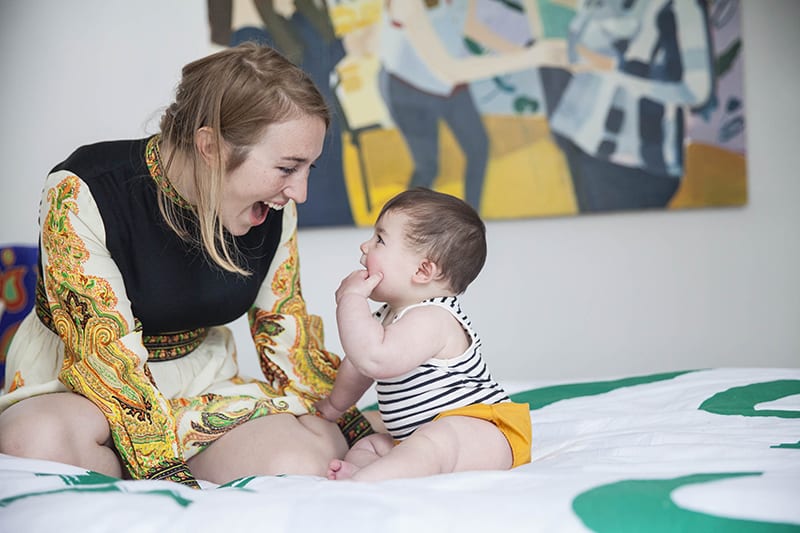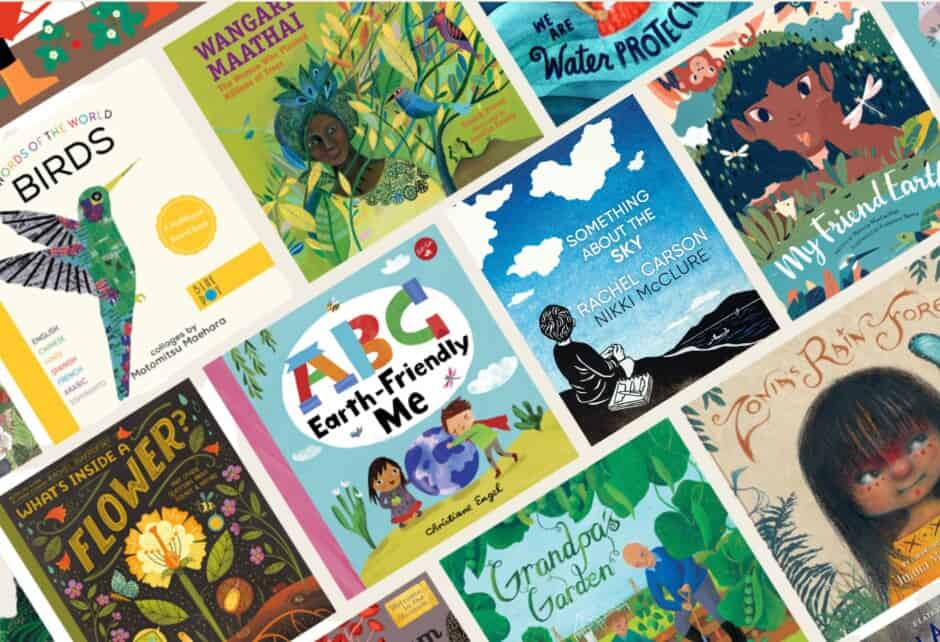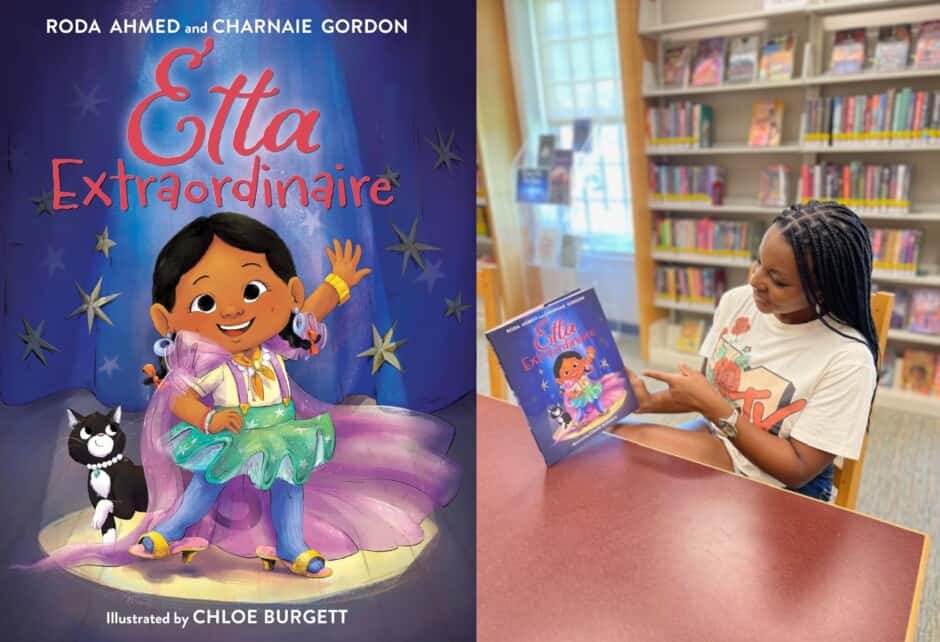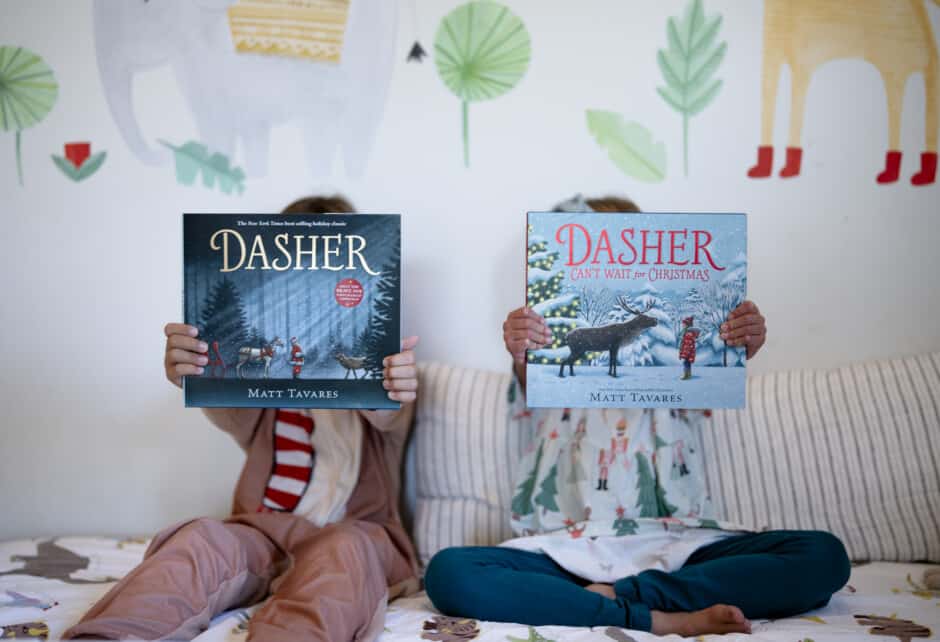
Why You Should Be Talking (And Reading) to Your Baby
Written by Jessica Williams
Photography by Kisha Bari
Brewing your morning coffee or buttering your morning toast might not be the most exciting part of your day, but you know who’d love to hear all about it? Your baby. While it might feel silly at first to narrate your life to your pint-sized offspring, all those words spoken to your baby are critical for language acquisition and development. In fact, research shows young children who are exposed to more different words have a huge head start once they enter preschool. So, without further ado, here’s what you need to know about the important topic, in a nutshell.
Why talking to your baby is important: The more words you say to your baby, the better off she is in terms of language and cognitive development. A 1995 study called The 30 Million Word Gap showed the long-term effects of talking to your baby at an early age. The study looked at children from three different socio-economic backgrounds—professional class, working class, and lower-income class families. Researchers found children from the lower-income class hear thirty million fewer words by their third birthday than children from professional class families, and those children who were exposed to more words had better reading and academic skills once they entered preschool. This research proves that what parents do from the earliest of ages does affect our children’s long-term development and academic success.
How it affects brain development: “A baby’s brain doubles in size in the first year, and by age three, it reaches 80% of its adult volume, and by age five, 90%. The experiences that babies have early on create circuits in their brain,” explains Erika Cardamone, a mother, licensed speech-language pathologist, and founder of The Speechies in San Francisco and Baby School, an online video series that teaches parents how to maximize playtime for language development. “Every new experience provides a new motor, sensory, emotional, cognitive pathway for the brain to start to build these connections. Over time, the brain gets wired based on these early experiences. In regards to reading and talking [to your child], language stimulation is the one form of stimulation that has been shown to have a direct impact on brain development. That is, infants who were talked to and read to more did show more advanced linguistic skills and development later in life.”
Reading vs. Talking: Reading, it turns out, is equally powerful. Even if it’s just reading adult stuff out loud. “You can read anything. If your kiddo is in that newborn stage, read blogs out loud, read The New York Times out loud, read People Magazine out loud,” advises Cardamone. “All those words are so much better for a baby to be hearing than even music. Because music, like television, counts as background noise. Your baby needs to hear your spoken voice.” In other words, turn off the television while you’re playing with your baby to help him hear your voice clearly and to differentiate words.
Toys that “talk”: Simply put, toys that “talk” aren’t a substitute for a parent’s voice. “The electronic toys essentially are for parents to take a time out, but not for babies or toddlers to learn,” says Cardamone. “From a language acquisition and a language development standpoint, those electronic toys are not teaching our children—we are.” So, use those gadgets in a pinch for entertainment, but know that you are your own best tool. Having a live voice and live interaction is what really creates learning and memory pathways that help a baby’s brain grow.
Like a FitBit for baby words: For gadget-friendly parents, the Starling is the first-ever technology that counts the number of words that you say to your baby. Your baby can wear it, you can clip it on a stroller, or you can put it next to your baby’s crib. Three Stanford business school graduates developed the Starling based on research such as The 30 Million Word Gap. “It’s like a Fitbit, [but] instead of tracking your steps, it tracks your words,” explains Cardamone, who is an advisor to Starling’s parent company, VersaMe. “This is something that motivates parents to talk more.” Parents can set a target word count that will challenge their family. The tracker can differentiate between a human voice and a not-human voice, so it will not count words from a television, for example.
In summary: Talk, read, and sing to your baby. And put your phone away. Not only are babies distracted by electronics, but they are distracted by you on your electronics. Try to be distraction-free for 15 genuine minutes of playtime with your baby, several times a day, where you are talking, reading, and singing to him. “Your baby’s brain will certainly benefit,” says Cardamone, “and you’ll feel good about helping your baby thrive.”
Share this story




